Test Your Knowledge with True or False Questions About Interstate Moves
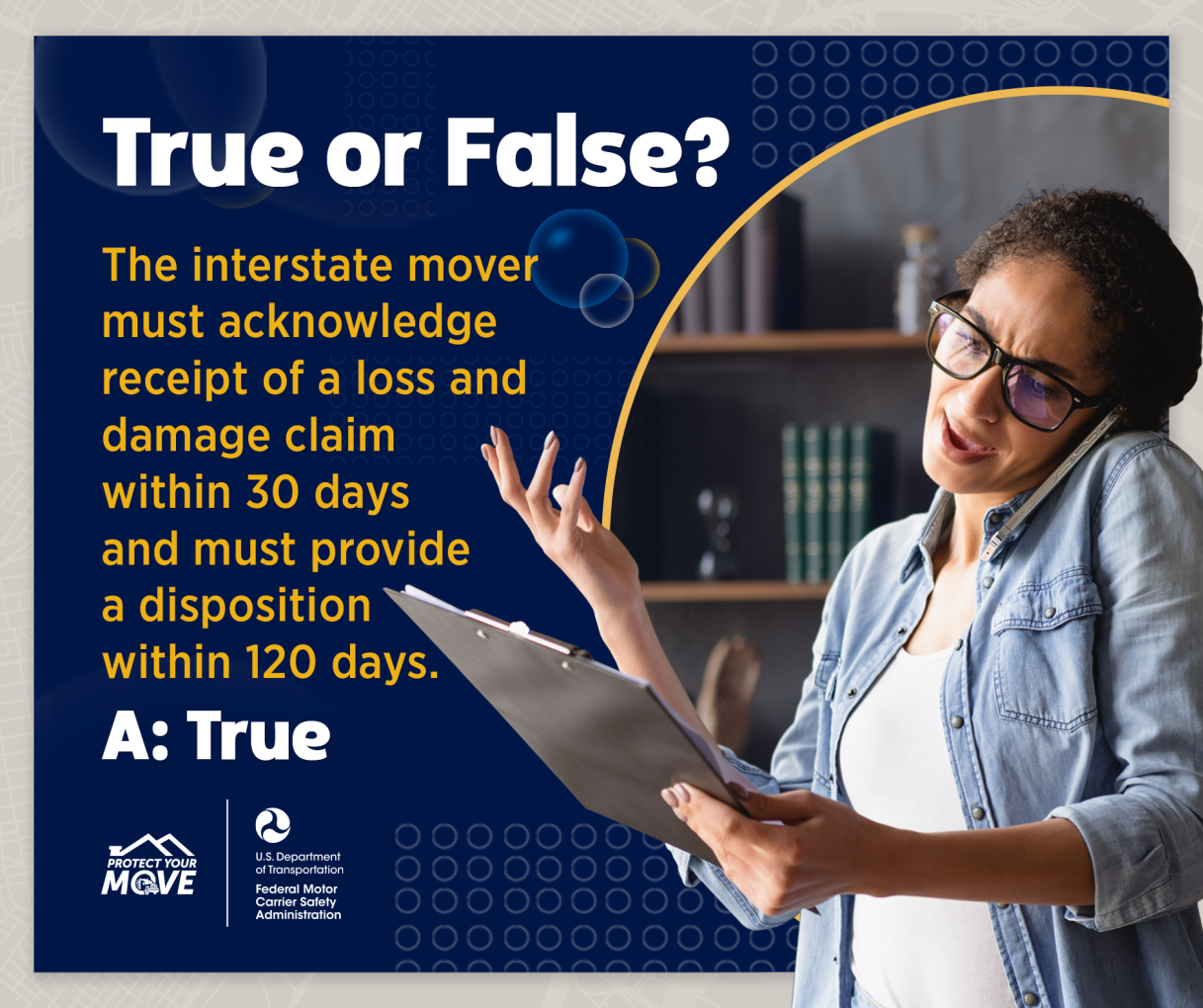
It's true. Your interstate mover or broker is required to acknowledge, process and settle a lost or damage claim within 120 days of receipt. Learn more about what to do if you have a loss or damage claim in the Your Rights and Responsibilities When you Move booklet.

It's true. FMCSA recommends that either you or someone you trust be present during the loading and unloading of your household goods.
Learn more tips for a smooth move in the Your Rights and Responsibilities When you Move booklet.

False. A moving broker is not authorized to transport your household goods.
A moving broker is not the same as a moving company or “mover.” A moving broker has a sales team that books your move and transfers the actual moving responsibility to a moving company.
A moving company has trucks and labor to physically perform your household move.
Learn more tips for a hassle-free long distance move here.
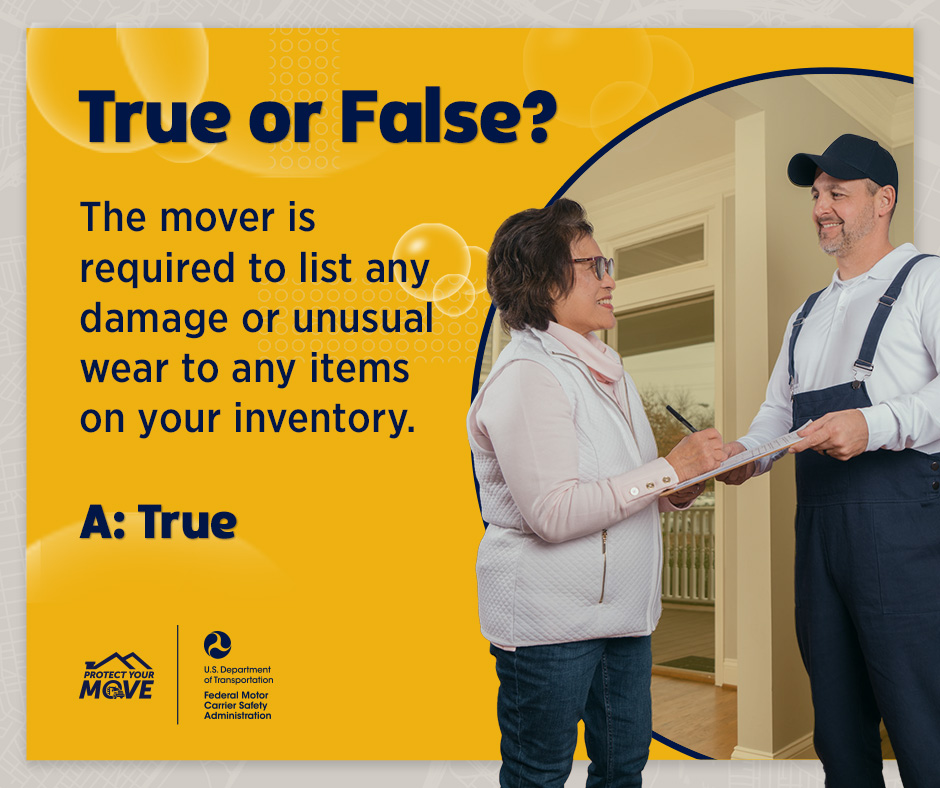
It’s true. The mover is required to list any damage or unusual wear to any items on your inventory.
Your interstate mover must prepare an inventory of your shipment. Usually, this is done when the mover loads your shipment. The mover is required to note the condition of worn items. After completing the inventory, both you and the mover must sign each page of the inventory.
Learn more tips for a hassle-free long distance move here.
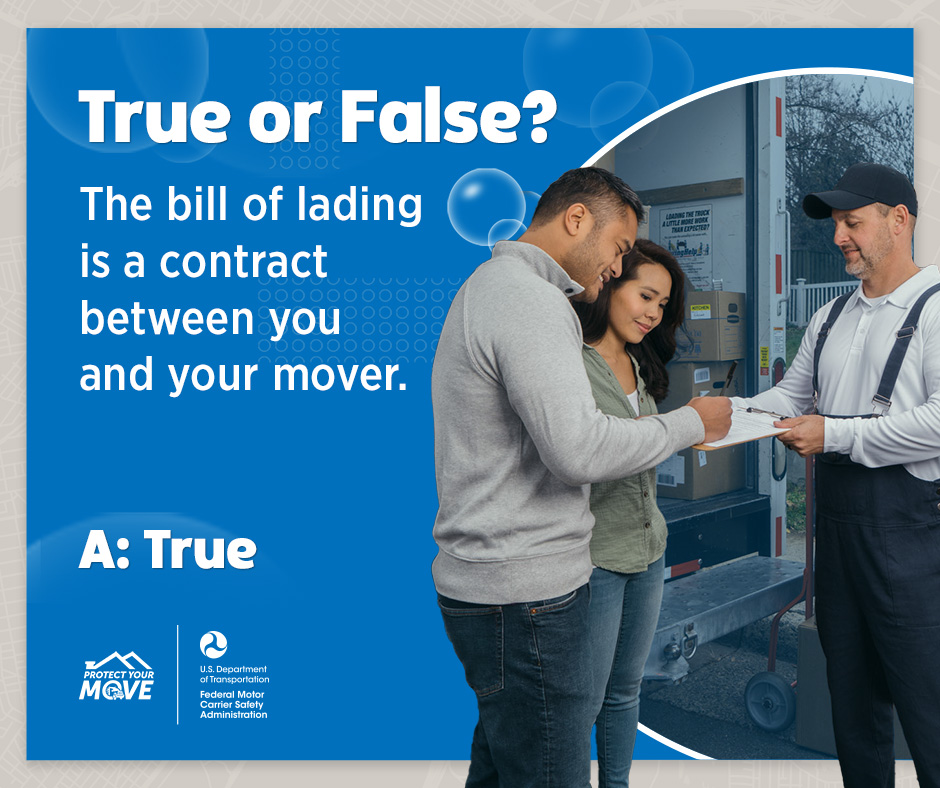
True. The bill of lading is a contract between you and the mover and also a receipt of your belongings. You should be given a partially completed copy of the bill of lading before the mover leaves from the starting point.
Learn more about the importance of a bill of lading and other tips for a successful move here.
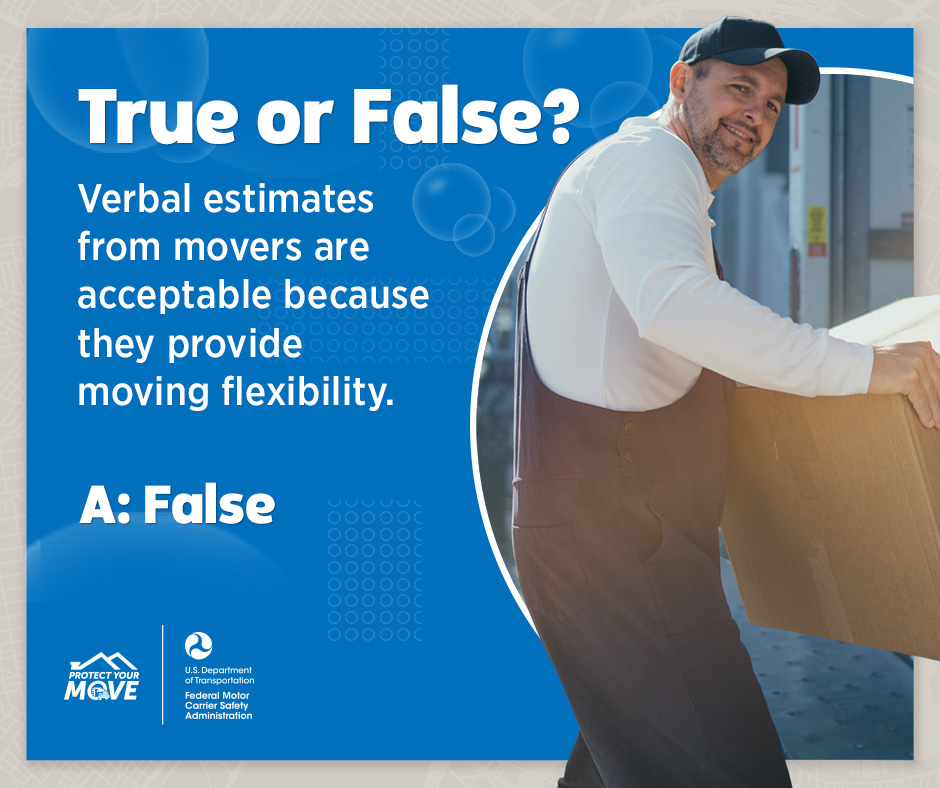
False. Verbal estimates from moving companies or brokers are unacceptable. Get your estimates in writing.
Your written estimate should clearly describe all charges for services the mover will perform. Make sure the estimate is signed by the mover. Do not accept verbal estimates.
Learn more about estimates for interstate moves here.
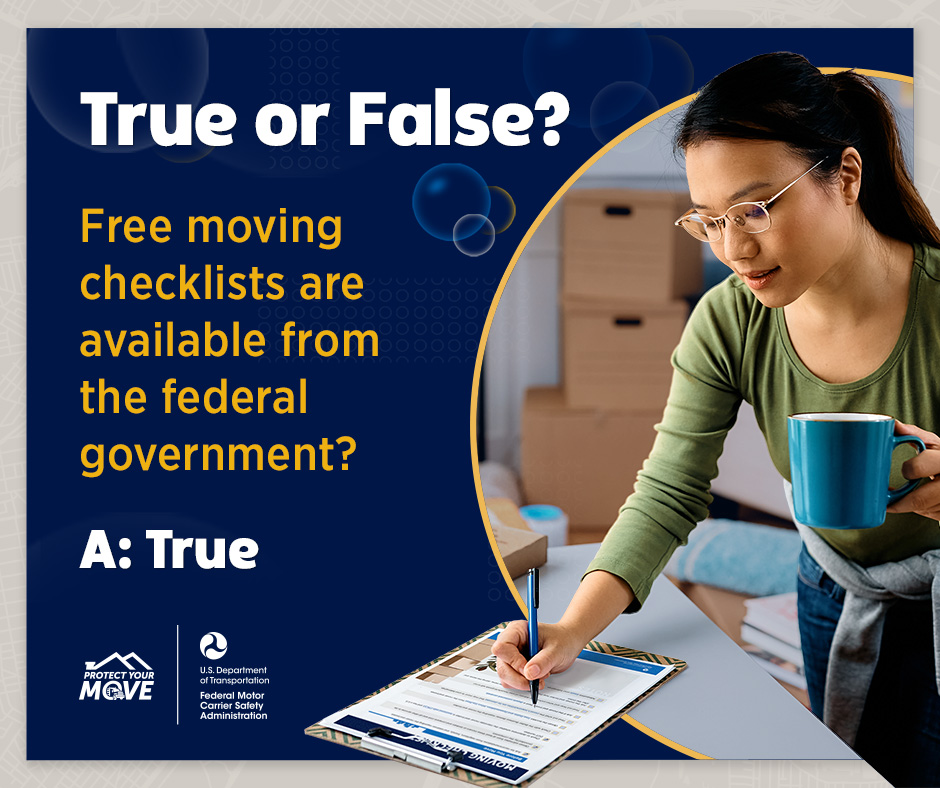
It's true. Free moving checklists are available from a reliable source: the Federal Motor Carrier Safety Administration.
You can download FMCSA's free moving checklist that guides you before you move, on moving day from your current home and delivery day to your new home. Avoid some of the obstacles of moving. Find this helpful checklist here.
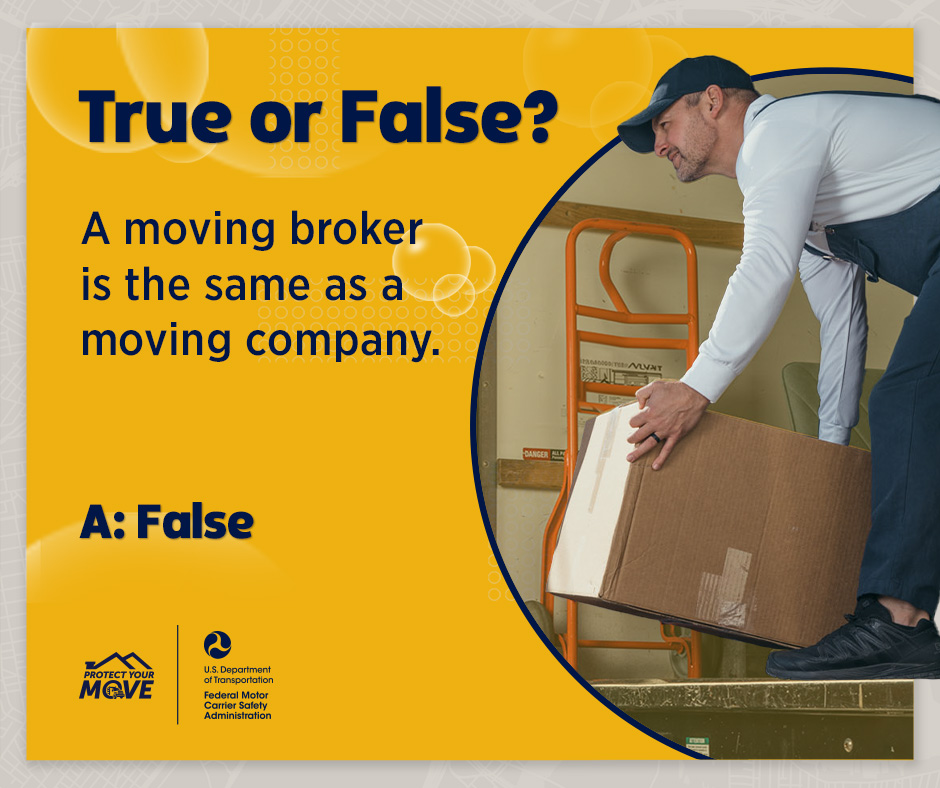
The answer is false. If you’re planning a move, you should know there’s a difference between a moving broker and the moving company. A moving broker has a sales team that books your move and transfers the actual moving responsibility to a moving company. A moving company or mover has trucks and people who will actually transport your household goods.
Learn more about working with movers and brokers here.
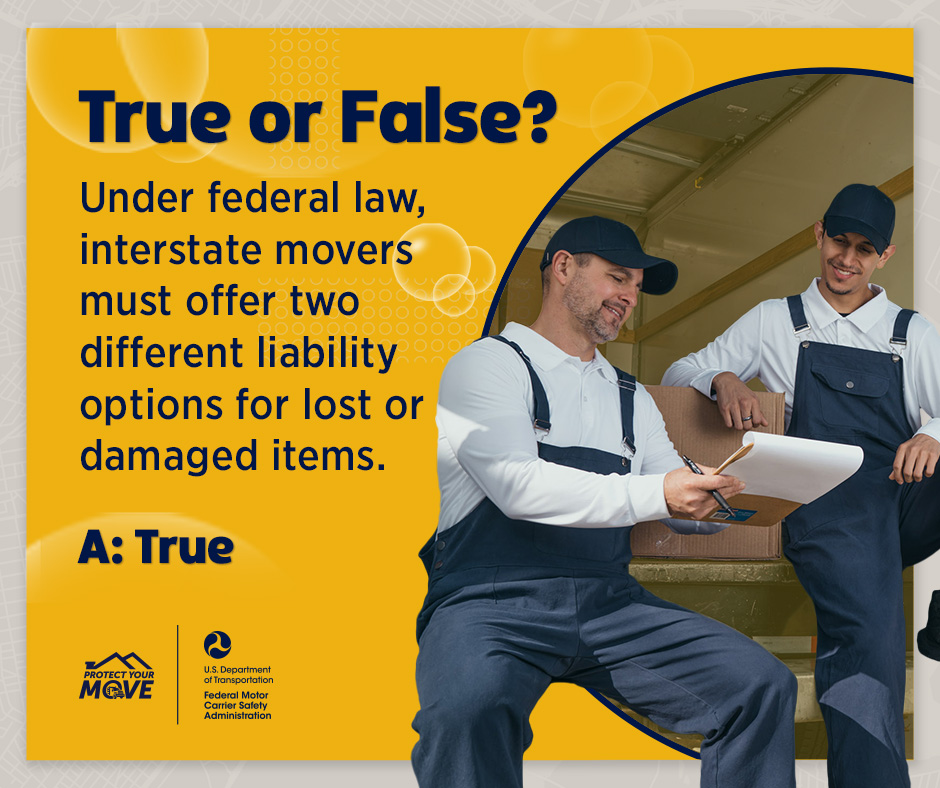
It’s true. Under federal law, interstate movers must offer two different types of liability options for lost or damaged items.
In general, your mover is legally liable for loss or damages that occur during the move. There are two different liability coverage options: Full Value Protection and Released Value Protection.
Learn more about liability and protection options here.
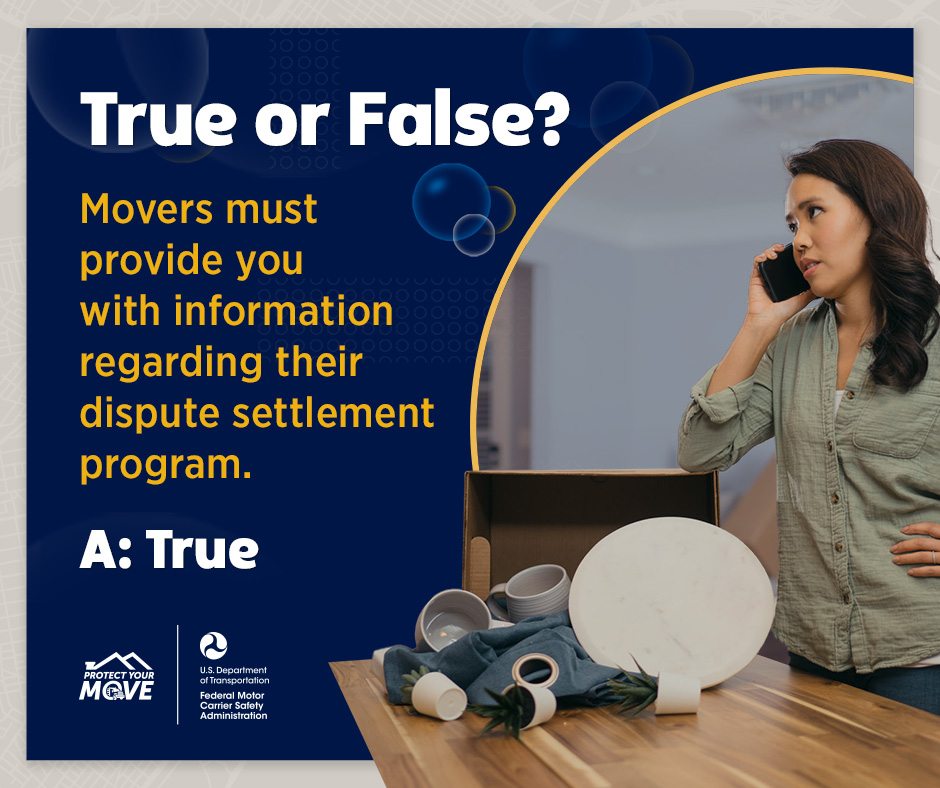
True. Interstate movers are required to provide you with information regarding their dispute settlement program.
Movers must offer a neutral dispute settlement program as a means of settling disputes that may arise concerning loss or damage of your household goods.
Click here to learn more in our free Your Rights and Responsibilities When You Move booklet.
